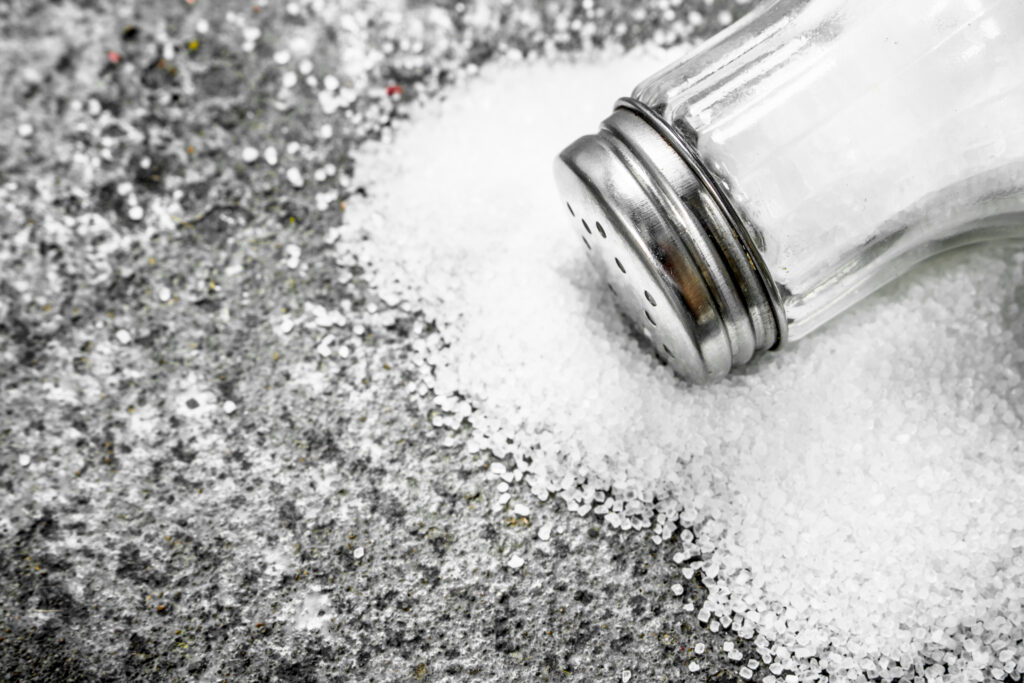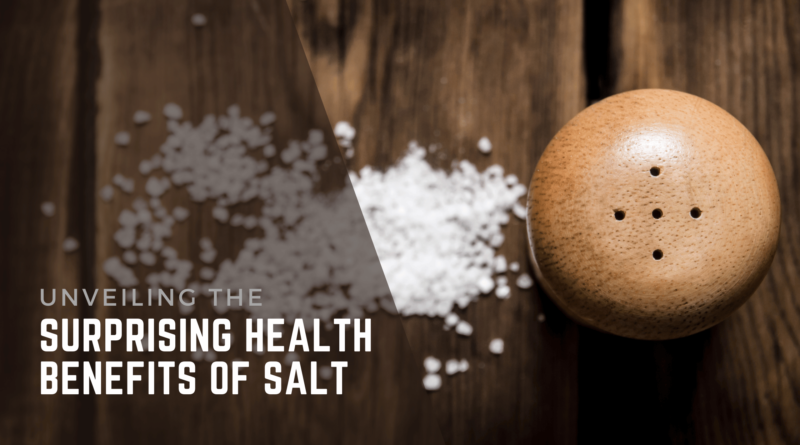Unveiling the Surprising Health Benefits of Salt
Explore the often overlooked and surprising health benefits of salt. This essential mineral, when consumed in the right amount, plays a critical role in enhancing flavors, balancing body fluids, promoting nerve function, and even contributing to better sleep. Let’s unveil the mysteries of salt, and embark on a journey towards better wellbeing with a balanced diet.
Salt has been an integral part of human cuisine for thousands of years, but is it just a flavor enhancer or does it have other, more surprising benefits? Let’s delve into the world of this often misunderstood mineral.
Table of Contents
An Unexpected Ally in Your Spice Rack
Most of us are quick to associate salt with high blood pressure and other health issues. However, when used correctly, salt can actually contribute to our wellbeing in numerous ways.
Common Misconceptions About Salt
One of the most common misconceptions is that all salt is bad. However, salt, or rather its key component – sodium – plays a vital role in our bodies.
Sodium – The Notorious Nutrient
Despite its infamous reputation, sodium is a necessary nutrient. It helps maintain fluid balance, aids in nerve function, and even regulates blood pressure. The catch, though, lies in the amount consumed.

Unveiling the Benefits
There’s a silver lining to the cloud of confusion surrounding salt. Let’s explore its benefits.
Enhances Flavor
Salt is the secret weapon of every kitchen worldwide. But why is that?
Salt’s Role in Cuisine
Salt’s magical property of enhancing other flavors makes our food more enjoyable, yes, but it also helps reduce the need for additional, potentially harmful, ingredients.
Balances Body Fluids
The salt in our bodies isn’t just for flavor. It also plays a critical role in hydration.
Salt and Hydration
The sodium in salt helps balance body fluids by working with potassium to maintain the right amount of water in our cells.
Essential for Nerve Function
Our nerve cells rely heavily on the salt in our diets.
Salt and the Nervous System
Salt plays a critical role in sending electrical signals between nerve cells, allowing for communication within our body.
Promotes Better Sleep
Ever considered that your diet could be affecting your sleep?
Salt and Your Sleep Cycle
It turns out, the right amount of salt can contribute to a good night’s sleep by helping regulate bodily functions that are key to rest and relaxation.
World Health Organization’s Guidelines on Salt Consumption
The Right Amount of Salt
The benefits of salt are clear, but how much should we be consuming?
Recommended Intake
Determining the right salt intake isn’t always straightforward. It’s essential to find a balance that suits your unique needs.
How Much Salt Do You Need?
The World Health Organization recommends less than 5 grams of salt per day. However, individual needs can vary.
Salt Intake: Risks and Rewards
While salt has clear benefits, overconsumption can lead to health issues.
Excess Intake: Potential Dangers
The other side of the coin shows us that excessive salt consumption can lead to high blood pressure, heart disease, and stroke.
The Dark Side of Overconsumption
Overindulging in salt can put a strain on our kidneys, heart, and arteries. Moderation is key.

Conclusion
When taken in the right amount, salt can provide surprising health benefits, from enhancing flavors and balancing body fluids, to promoting nerve function and better sleep. While the potential dangers of overconsumption should not be overlooked, this humble mineral remains an essential part of our diet and our health.
Frequently Asked Questions About Health Benefits of Salt (FAQs)
Q1. Does salt intake affect blood pressure?
Ans: Yes, excessive salt intake can increase blood pressure, potentially leading to heart disease and stroke.
Q2. How much salt should I consume daily?
Ans: The World Health Organization recommends less than 5 grams of salt per day. However, individual needs may vary.
Q3. Is sea salt healthier than table salt?
Ans: Sea salt and table salt contain the same amount of sodium. The main differences lie in taste, texture, and processing.
Q4. Does our body need salt?
Ans: Yes, salt plays a vital role in maintaining fluid balance, nerve function, and blood pressure regulation.
Q5. Can reducing salt intake improve my health?
Ans: Reducing salt intake can help manage high blood pressure and decrease the risk of heart disease and stroke.
You may also like




